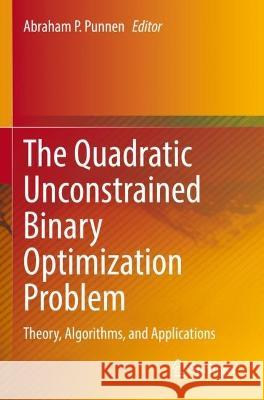The Quadratic Unconstrained Binary Optimization Problem » książka
topmenu
The Quadratic Unconstrained Binary Optimization Problem
ISBN-13: 9783031045226 / Angielski / Miękka / 2023
The Quadratic Unconstrained Binary Optimization Problem
ISBN-13: 9783031045226 / Angielski / Miękka / 2023
cena 659,97 zł
(netto: 628,54 VAT: 5%)
Najniższa cena z 30 dni: 655,41 zł
(netto: 628,54 VAT: 5%)
Najniższa cena z 30 dni: 655,41 zł
Termin realizacji zamówienia:
ok. 20 dni roboczych.
ok. 20 dni roboczych.
Darmowa dostawa!
The quadratic binary optimization problem (QUBO) is a versatile combinatorial optimization model with a variety of applications and rich theoretical properties. Application areas of the model include finance, cluster analysis, traffic management, machine scheduling, VLSI physical design, physics, quantum computing, engineering, and medicine. In addition, various mathematical optimization models can be reformulated as a QUBO, including the resource constrained assignment problem, set partitioning problem, maximum cut problem, quadratic assignment problem, the bipartite unconstrained binary optimization problem, among others.This book presents a systematic development of theory, algorithms, and applications of QUBO. It offers a comprehensive treatment of QUBO from various viewpoints, including a historical introduction along with an in-depth discussion of applications modelling, complexity and polynomially solvable special cases, exact and heuristic algorithms, analysis of approximation algorithms, metaheuristics, polyhedral structure, probabilistic analysis, persistencies, and related topics. Available software for solving QUBO is also introduced, including public domain, commercial, as well as quantum computing based codes.











